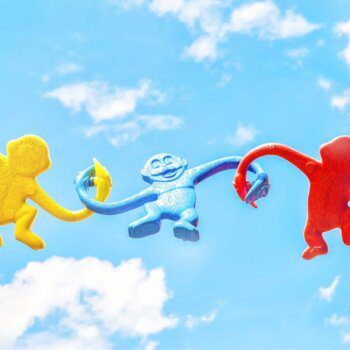Facebook is the perfect example of a strategy based on paranoia, with its obsessive attention to what is going on in the environment around it. For any company, developing its activity within the highly competitive social networks is extremely complex: changes in trends are constant, as are changes in tastes and preferences, along with new entrants … today you’re on the crest of the wave, tomorrow you’ve been forgotten.
This is pretty much what happened to MySpace, which went from being considered the symbol of an entire generationand generating more page views than Google to being sidelined in a matter of months; it was the same story with Friendster or Orkut, which found themselves unprepared for popularity in Malaysia and Brazil, and whose efforts to create a global strategy were stymied because they were perceived as local phenomena associated with one language and culture.
Not understanding these kinds of phenomena, and especially the speed they unfold at, led companies like News Corp. or AOL to lose several hundred million dollars when, after acquiring networks like MySpace or Bebo respectively for $580 million and $850 million, they ended up selling them for $35 million and $10 million just a few years later. As Rupert Murdochcommented on Twitter after announcing the sale in 2012,
“Many questions and jokes about My Space. Simple answer — we screwed up in every possible way, learned lots of valuable expensive lessons. “
The social networks are so fickle and so unstable, that working in them is highly stressful. It is an environment in which, to paraphrase Andy Grove’s 1996 book, “only the paranoid survive”: things can change in a very short time, and in many cases not for a reason easily explained.
Facebook knows the environment it operates in and acts accordingly, which has led to a chain of thirteen years of positive evolution and a valuation of almost $420 billion dollars. We can imagine its founder, Mark Zuckerberg, sitting on top of a very high pyramid, from which he can, with a turn of the head, see what almost two billion people around the world are doing: what we read, what we share, what we talk about … everything. Detecting the increasing popularity of such phenomena as Instagram, WhatsApp or Snapchat is a matter of simply paying attention, although it is well known that the signals are only seen by those able to interpret them. But as soon as Mark Zuckerberg saw that some sociodemographic segments were beginning to use those applications, he knew he had to do something if he did not want to be displaced in such an extremely volatile environment. So he launched bids for all three, with the result already known: he made off with Instagram and WhatsApp, but saw Snapchat reject his offer of $3 billion. Since then, he has tried to copy Snapchat up to four times, until he came up with Instagram Stories, which has already managed to pass Snapchat itself in terms of the number of active users.
In such dynamic environments, this kind of paranoid behavior makes sense. The image that accompanies this entry belongs to Houseparty, a group video app launched at the end of September last year by the creators of Meerkat. Houseparty is growing in popularity among young people in the United States, Canada and some other countries, who use it to communicate in multiple real-time, and reasonably high quality, video windows. It’s a growing phenomenon, but yesterday, commenting on one of my classes, the response of a student who uses it regularly was as simple and straightforward as: “it’s supercool!”
What do you do if you are sitting atop that pyramid and you have the opportunity to see and grow something that could be the next big thing, and that has behind it the founders of an app that is still a big deal? Meerkat was the first app to generate traction in livestreaming, and was the sensation of the 2015 SXSW, and was finally challenged by Periscope, a similar app launched from Twitter, which ended up sinking Meerkat.
Facebook knows that to make decisions, it is essential to understand the phenomenon. At this point, it is virtually impossible to know if apps like Houseparty are going to become a mass phenomenon or a passing fad.
Knowing that involves carrying out fieldwork, research, and gathering information. With this in mind, Facebook has launched a survey of users between the ages of 13 and 17, asking if they use Houseparty or another similar app, Fam, which is described as “a group FaceTime”, while asking these young people to answer some questions and be part of a focus group in the offices of the company in Menlo Park, in exchange for a small payment. If a mass phenomenon is in the making, something that today is still very difficult to know, Facebook wants to know and find out as soon as possible, because the resulting decision may involve others such as launching an acquisition offer or simply copying it.
Paranoia is now just another element of business strategy. In environments that are moving faster and faster, paranoia is a logical consequence, a fundamental line of defense. But beware … I can think of more and more industries in which paranoia is becoming a necessary and fundamental element. If you think this only affects Facebook, or just the social networking environment, it is very possible that you are wrong. Moreover, it is quite possible that it is already too late.
About the Author
This article was written by Enrique Dans, Professor of Innovation at IE Business School and blogger at enriquedans.com.





























